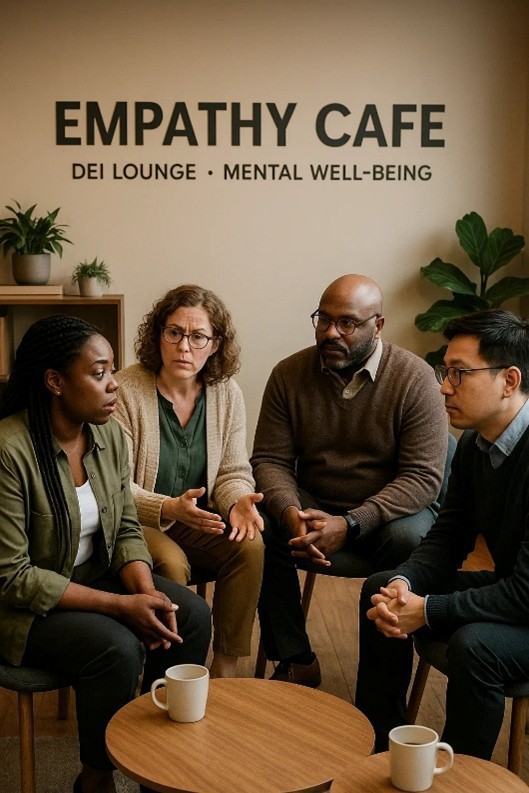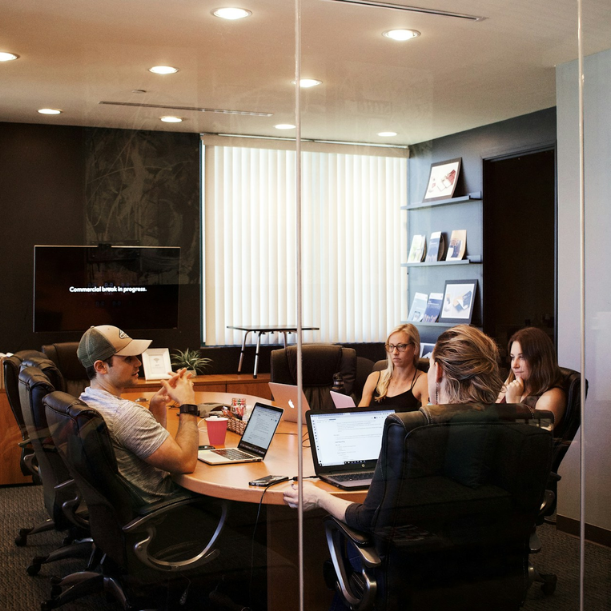Importantly, Empathy Cafés are not limited to physical spaces. In today’s remote and hybrid work models, they take shape virtually- on Zoom calls, Teams meetings, or dedicated online forums, where colleagues across geographies can pause, open up, and feel heard.
Employees are encouraged to speak freely about challenges, from work-related stress to personal struggles, with trained peer facilitators guiding the conversation. These interactions build psychological safety, reduce stigma around mental health, and create a improved company culture where vulnerability is not seen as weakness, but as strength.
Whether in-person or virtual, the goal remains the same: to create a culture of emotional safety where employees can bring their whole selves to work.
DEI (Diversity, Equity, and Inclusion) lounges go a step further. They are dedicated spaces for conversations around identity, belonging, and cultural understanding. They provide a platform for open dialogue around race, gender, ability, age, and importantly, LGBTQIA+ experiences.
Through storytelling circles, inclusive workshops, and candid peer-led discussions, DEI lounges encourage employees to listen, reflect, and grow. They help foster empathy across differences, break down unconscious bias, and cultivate a culture where every voice feels seen, heard, and valued.
| Space Type |
Purpose |
Format |
Key Outcomes |
| Empathy Café |
Peer-sharing & emotional resilience |
In-person or virtual |
Reduced burnout, deeper trust |
| DEI Lounge |
Identity, inclusion, and belonging |
Workshops, discussions |
Greater inclusivity, reduced bias |
 />
/>








